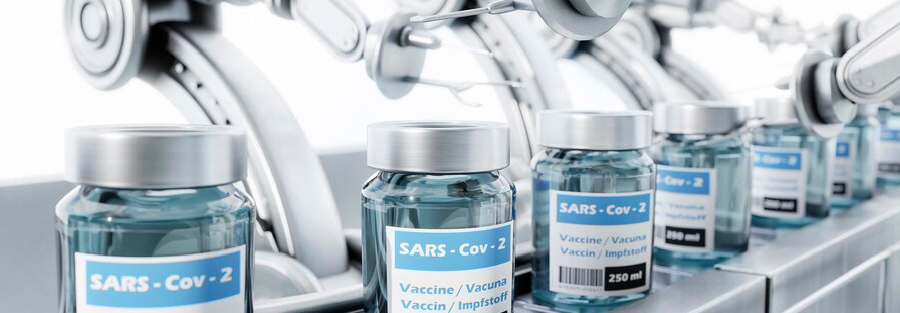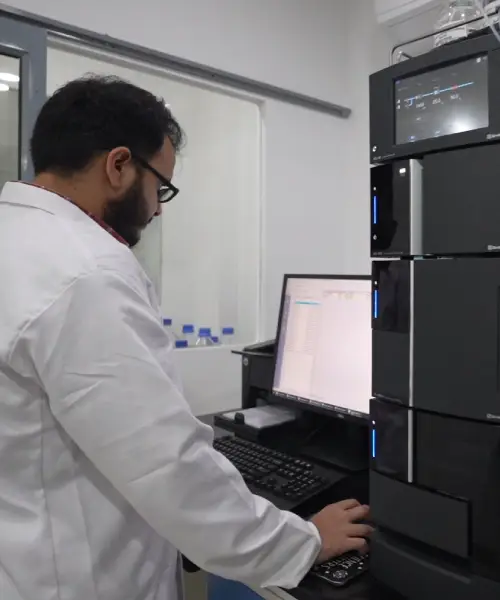
API Pharma
The pharmaceutical industry relies on chemical process development to efficiently produce active pharmaceutical ingredients (APIs). Over the years, significant progress has been made in refining API process development to meet the growing demands for quality, scalability, and cost-efficiency.
In the early days, traditional batch manufacturing methods were widely used. However, they posed challenges such as inefficient resource utilization, long processing times, and difficulties in scaling up. The need for more streamlined production methods led to the emergence of modern process development techniques.
Innovations such as continuous flow manufacturing, biocatalysis, and automation have transformed the way APIs are developed and manufactured. These advancements not only improve process efficiency but also reduce waste, enhance safety, and ensure regulatory compliance. Today, API manufacturing is more precise, sustainable, and cost-effective than ever before.
Key Milestones in API Process Development
The field of chemical process development has undergone multiple phases of evolution, each marked by technological breakthroughs and improved methodologies.
1. Early Synthesis Methods
Initially, API production was based on trial-and-error methods, relying heavily on manual chemical reactions and crude purification processes. This approach often led to inconsistencies in quality and yield.
2. The Rise of Catalysis
With the introduction of catalytic reactions, API process development saw a significant improvement in efficiency. Catalysts enabled selective reactions, reducing unwanted byproducts and enhancing overall yield.
3. The Advent of Continuous Flow Manufacturing
One of the most transformative changes in process development was the adoption of continuous flow chemistry. Unlike traditional batch processing, this method allows for better control over reaction conditions, improving safety and scalability.
4. Automation and Data-Driven Optimization
Recent advancements in API manufacturing have incorporated artificial intelligence (AI) and machine learning to optimize reaction parameters. Real-time monitoring and predictive modeling enable companies to refine chemical process development strategies efficiently.
With the demand for complex and highly potent molecules increasing, the role of custom synthesis manufacturing has become more critical. Companies specializing in custom synthesis manufacturing offer tailored solutions to optimize API process development and enhance production efficiency.
Challenges in Chemical Process Development
Despite significant progress, chemical process development presents several challenges that must be addressed to ensure seamless API production.
1. Scalability and Process Consistency
Scaling up a reaction from lab-scale to commercial production is one of the most complex aspects of API process development. Reaction kinetics, heat transfer, and impurity profiles can change significantly at larger scales.
To overcome these challenges, companies employ advanced process development techniques such as continuous monitoring, process intensification, and real-time adjustments.
2. Regulatory Compliance and Quality Control
Regulatory bodies such as the USFDA, EMA, and WHO enforce strict guidelines for API manufacturing. Companies must ensure compliance with Good Manufacturing Practice (GMP) standards to receive market approvals.
Robust process development strategies that incorporate risk assessment, validation studies, and analytical testing play a crucial role in meeting regulatory expectations.
3. Cost and Environmental Sustainability
API production involves complex reactions that often generate hazardous waste. The industry is now focusing on green chemical process development techniques, such as solvent recovery, enzyme catalysis, and process intensification, to reduce environmental impact.
Collaborating with experienced CDMO solutions providers allows companies to optimize costs while maintaining high-quality standards in API process development.
The Role of CDMO Solutions in API Manufacturing
The demand for efficient and flexible API manufacturing has led to the growing importance of CDMO solutions (Contract Development and Manufacturing Organizations). These organizations specialize in process development, scale-up, and commercialization, providing end-to-end solutions for pharmaceutical companies.
Benefits of Partnering with CDMO Solutions
- Expertise in Complex Synthesis: CDMOs have extensive experience in handling intricate API process development challenges, ensuring optimal production methods.
- Regulatory Compliance Support: A reliable CDMO solutions provider ensures that all regulatory requirements are met, streamlining the approval process.
- Cost-Effective Production: Outsourcing process development to a CDMO reduces infrastructure and operational costs, allowing pharmaceutical companies to focus on innovation.
Future Trends in Chemical Process Development
As the pharmaceutical industry evolves, several emerging trends are shaping the future of API process development:
1. Automation and Artificial Intelligence
AI-driven modeling and automation are enabling faster optimization of process development. Real-time monitoring systems provide insights that help refine reaction conditions and minimize deviations.
2. Green Chemistry and Sustainable Practices
With increasing regulatory pressure and environmental concerns, the adoption of green chemical process development methods is on the rise. Techniques such as enzymatic catalysis and solvent recovery are making API manufacturing more sustainable.
3. Modular and Flexible Manufacturing
To accommodate the growing demand for personalized medicines, companies are shifting towards modular manufacturing setups. These facilities allow for quick adaptation of API process development to produce niche APIs efficiently.
4. Enhanced Analytical Techniques
Advanced analytical tools, including high-resolution mass spectrometry and in-line process monitoring, are improving quality control in chemical process development. These technologies enhance precision and reduce batch failures.
The future of API manufacturing is driven by innovation and efficiency. Companies that invest in API manufacturing solutions will gain a competitive advantage in the evolving pharmaceutical landscape.
Conclusion
The journey of chemical process development has transformed over the years, leading to significant improvements in API manufacturing efficiency, sustainability, and scalability. From early trial-based methods to advanced AI-driven optimizations, the industry has continuously evolved to meet modern pharmaceutical demands.
With the increasing complexity of APIs, robust API process development strategies are crucial for maintaining quality, reducing costs, and ensuring regulatory compliance. Companies that leverage CDMO solutions and invest in modern process development techniques will be well-positioned for future success.
As innovations in custom synthesis manufacturing and API manufacturing continue to emerge, the pharmaceutical industry must remain agile, embracing new technologies to optimize chemical process development for the next generation of life-saving medications.






